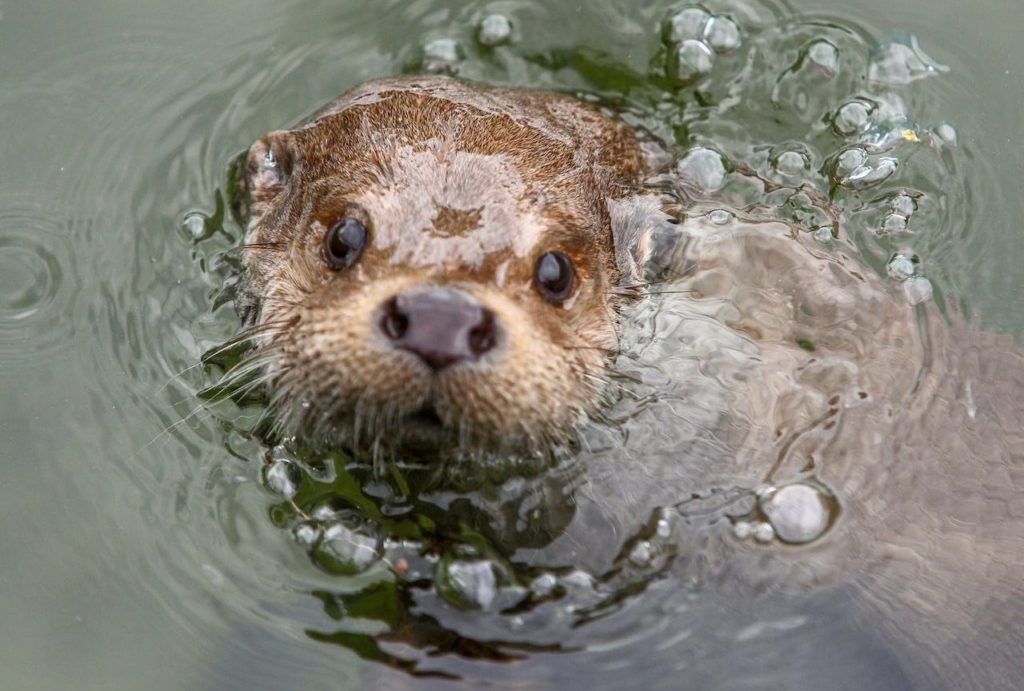

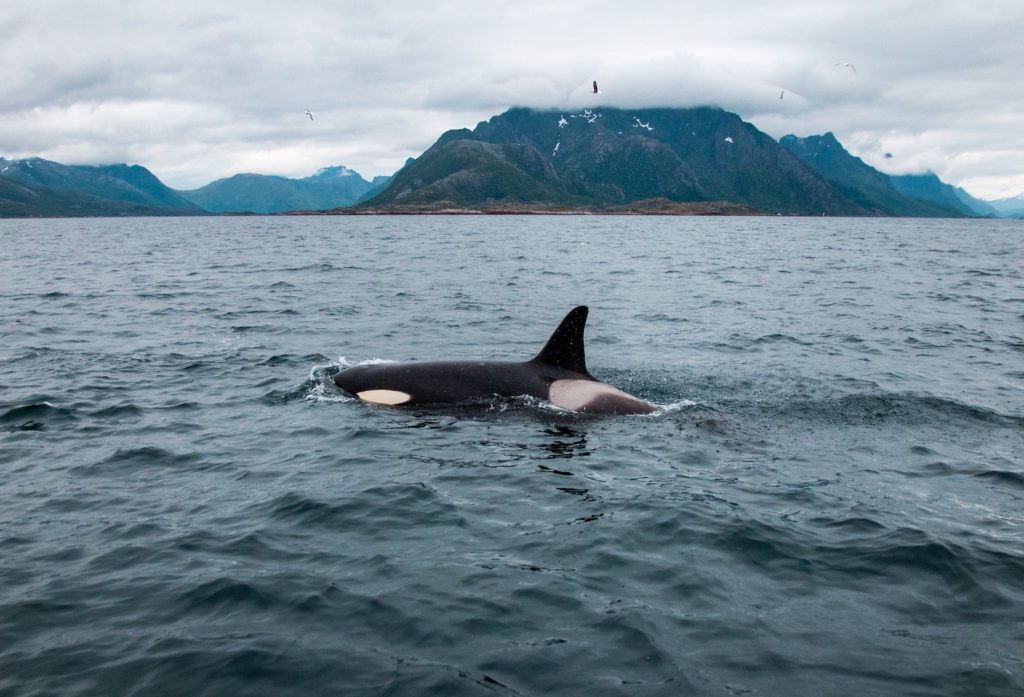
2022 is here, can you believe it? New year, new you? There is no better time to work at living a more sustainable life than right now. The climate crisis is not going away and it’s only going to continue making headlines and affecting your day-to-day routines. Climate change will likely impact you in many more ways than just changing how cozy it is in October or how much it rains in July. So to ring in the new year I’ve decided to make a TON of eco-friendly challenges (more than 40) that will help you reach your sustainability goals.
Unlike a typical listicle, my challenges are arranged more in a guide-like fashion. I’ve created 3 groups: Orca, Otter, and Bee. In order to accommodate your current lifestyle as much as possible, each group has their own set of challenges for the year. I’ve curated each set of challenges for a different level of eco-friendly intensity.
So the first thing you’ll want to do is decide which group you fit best in. I have a description for each group below. Let’s get started!
Sustainably is supported by readers like you. When you buy through links on this site, we may earn an affiliate commission at no additional cost to you. You can read more about affiliate links on our “Affiliate Marketing…” page.
The Bees
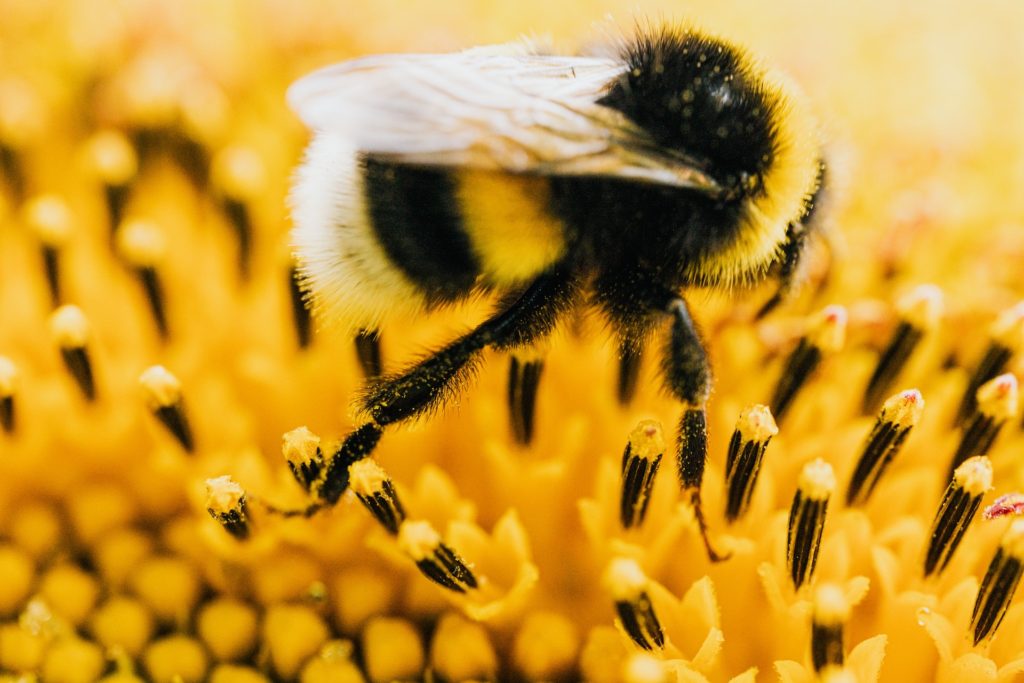
This group is right for you if...
The bee group is a perfect fit for you if you don’t really know where to start or what to do. Or, if you just kind of feel like you’re still new to sustainability and are really curious about living a greener life. Maybe you’ve seen a cool eco-friendly product here and there on Instagram and thought about getting it but just haven’t yet. Or maybe you have some reusable straws, a reusable cup, and a couple reusable grocery bags but that mostly sums up your sustainable habits.
What makes Bee challenges special?
The challenges I’ve created for the Bee group focus on zero waste basics like reusable straws, cups, bottles, and household supplies. The challenges are meant to encourage you to build better habits. You might also notice that some of the challenges really focus on your routines at home, and encourage you to try new products.
I’ve specifically tailored the Bee challenges to where you are in your journey and I find that a lot of people really find encouragement in trying new products and building them into their regular routines. I think making those kinds of changes in your life throughout this year will really help you build momentum and gain confidence as you grow in your sustainable journey.
If you feel this is the perfect group for you, then go ahead and click here to move onto the “Pro-Tip” and “Next Steps” sections below.
The Otters

This group is right for you if...
The Otter group is right for you if you already have some of the eco-friendly basics down and you’re ready to learn and grow even more! You already recycle some, you use your reusable straws, cups, and bags regularly (or almost regularly), and you have a good amount of zero waste products in your home.
What makes Otter challenges special?
I’ve created the Otter challenges to push you in all the right ways! These challenges aren’t as product focused as the Bee challenges. Otter challenges really launch you from buying new things and “experimenting” with green products into strengthening your eco-conscious habits and mindset. This is a really exciting space to be in, because you might still be honing your skills with reusables or trying new things here and there, but for the most part you’ve got that stuff down and you’re eager for the next step in your journey!
If you feel this is the group for you, then go ahead and click here to move onto the “Pro-Tip” and “Next Steps” sections below.
The Orcas
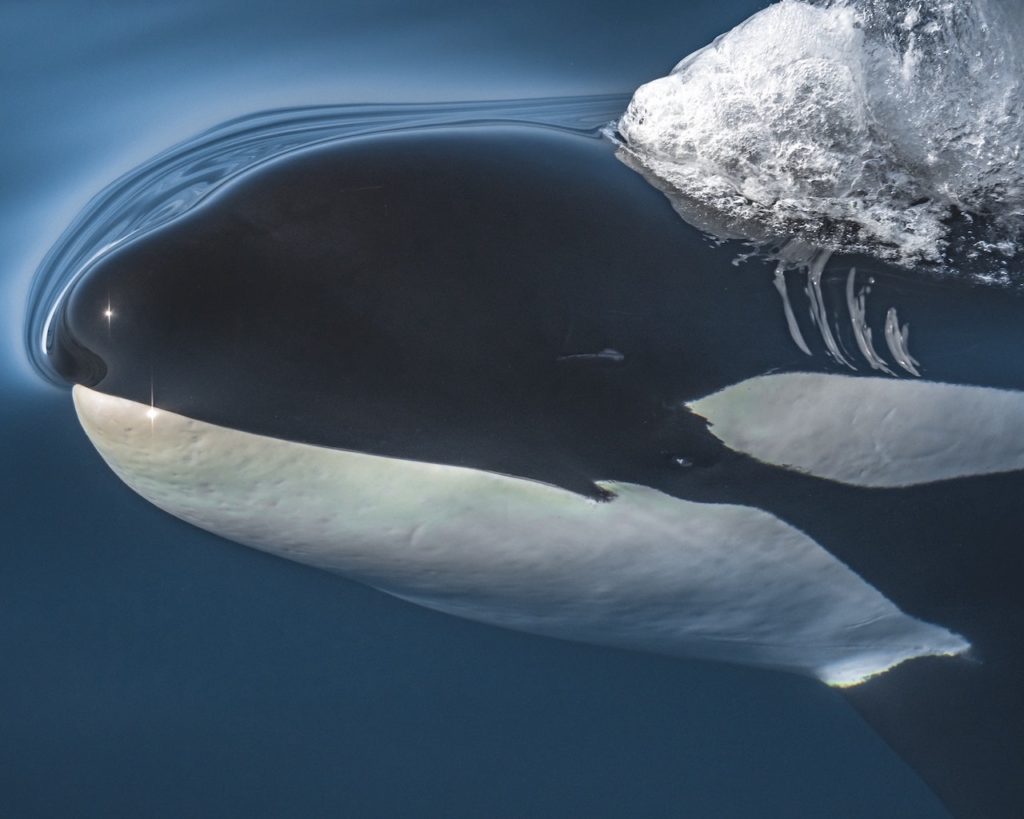
This group is right for you if...
Also known as the killer whale, orcas are my absolute favorite animal on this planet. You’re definitely an orca if you know all the top brand names in the industry, you recycle everything you can, you talk about sustainability with friends and family, and more. Just like the Orca is an apex predator of the seas, you’re at the top of your game when it comes to sustainability.
What makes Otter challenges special?
I’ve tailored the orca challenges to really help you level up your eco-friendly habits and encourage you to try new things while living more sustainably. The orca challenges focus the least on new products and most on behavior and mindset (compared to the Bee and Otter groups). You’ll find this group of challenges most useful if you’ve been making changes to your lifestyle for a while and are ready to take it up a notch.
Pro-Tip
Make sure to look ahead by at least a few months. Some of the challenges involve sustainable swaps. If you see that a challenge has a swap, then make sure to use what you have first. For example, if there is a swap for toilet paper in March then make sure you don’t buy 100 rolls in February. Line it up as best you can, or just switch out that month’s challenge.
Next Steps
Now that you know what group you’re in, let’s move on to the actual challenges. The challenges are displayed under the group name heading below (Bee, Otter, Orca). You can easily navigate to the correct section using the Table of Contents directly below.
Here’s what you should know moving forward. This is your life! And, your journey is your journey. How you choose to be sustainable is up to you. The resources I’ve created here are meant to be just that, tools in your toolbox.
You should feel free to mix and match challenges. If you’ve already accomplished one thing, then swap it out for another challenge. You can substitute challenges from other groups, make your own, or whatever else you can think of. What you should be hearing from me right now is, there are no “rules.” The goal of these challenges is progress and growth, not perfection.
At the very end of this blog post is an additional 10 challenges. Those are specifically meant to be modified or tweaked to fit your needs in case you don’t like one of the challenges I created for your 12-month set.
Table of Contents
Click on any of these to jump to that section of the page.
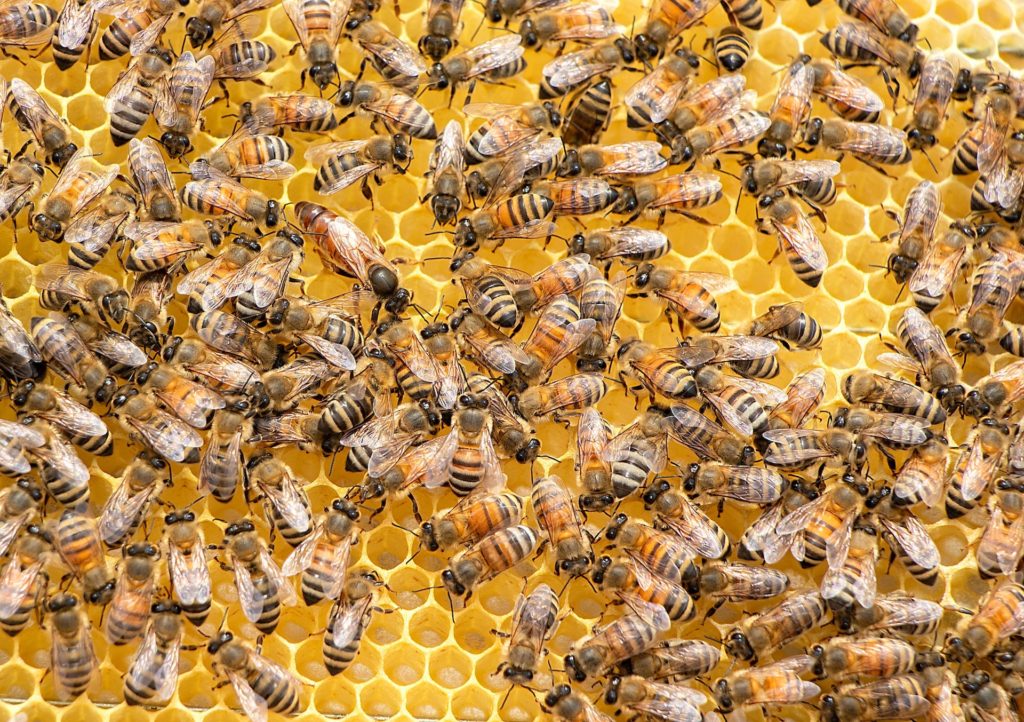
Bees
January - Perfectly Paperless
The goals for this month are exactly what they sound like, you’re going paperless! But there are two ways you consume paper that I’m referring to specifically: bills and cleaning.
January's Action
Your challenge this month is to enroll yourself in paperless billing. However you keep track of bills, be it mentally, a chart, a spreadsheet, etc., I want you to look at it and go through each account. Enroll in paperless billing.
January's Swap
For this month you’ll want to buy cleaning cloths and microfiber towels. I actually talk about both of these swaps in my 25 things post. You can find both of these items just about anywhere. From Target and Walmart to your local thrift store. In total you’ll be spending less than $10 and replacing paper towels forever.
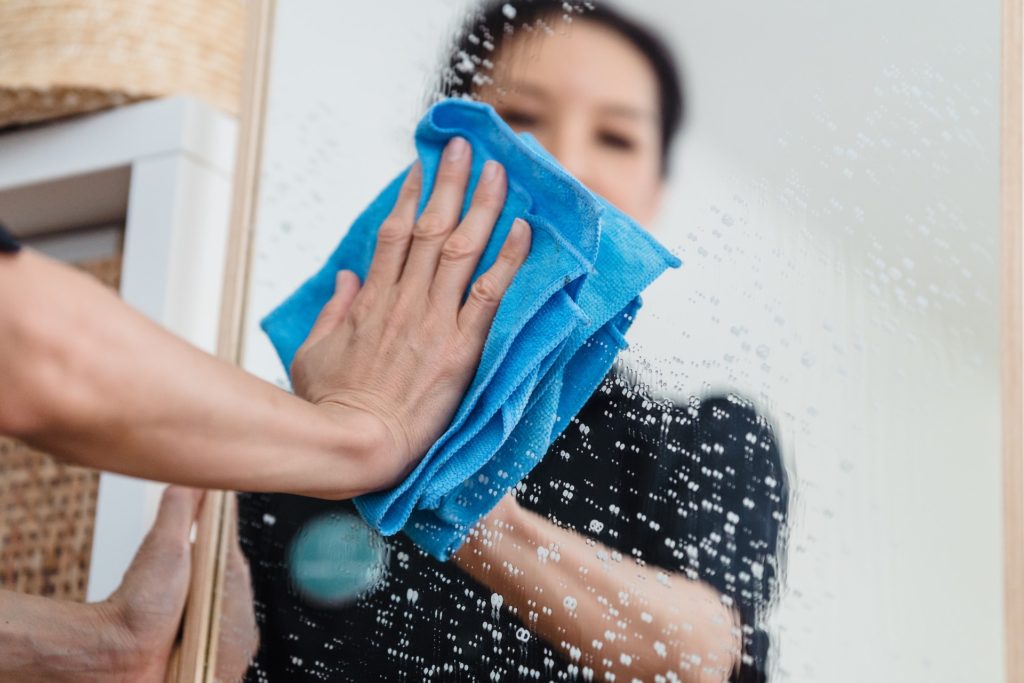
February - From the Windows to the Walls
This month you’re going to build an eco-friendly cleaning routine from the windows to the walls. We can easily skip the single-use plastic bottles and use zero waste alternatives from sustainable brands.
February's Action
Build on last months swaps, and continue using reusable cleaning clothes with your new cleaners! If you can manage to accomplish this, then congratulations! In less than two months you’ve reduced significant amounts of waste in your life!
February's Swap
What and how much you swap depends on your budget. There are 3 brands I’ll recommend here: Blueland, Clean Cult, and Grove Collaborative.
Klean Kult is an excellent choice and lots of people love them, but they run on the pricier side and not every recycling facility accepts their items. Grove Collaborative has cleaning products sold at Target, so you can skip the online shopping if you’d like. But, they also offer, what could be, a handy subscription program to. They’re a wonderful brand. Blueland might be my strongest recommendation. They might be as close to zero waste as you can get, and their products are pretty affordable all around.
Each of these brands will offer their own version of cleaning products and cleaning lines. For this month, I recommend you find something for your bathroom, the kitchen, and glass. That will also help you consolidate and organize your cleaning supplies as an added bonus. If you’re budget is smaller, then maybe just swapping glass cleaner will be the move for you.
March - Reduce and Reuse
This month you’re looking at two activities that involve water: washing your hands and washing your body.
March's Action
Work on reducing your shower time to 15 minutes. Despite what you might have been taught at a young age, water isn’t as renewable as we like to think it is. Water is precious, so reducing what you use in the shower can really help the environment in more ways than you think. You’ll be using less energy to heat the water, less chemicals to treat your water, and less carbon emmissions that come from treating and transporting the water you use (yes, water has a carbon footprint too).
March's Swap
Contrary to reduce, here I want you to use more water! Yes, use your water to fill up a reusable Forever Bottle from Blueland. Your swap this month is Blueland foaming hand soap. Blueland makes an excellent foaming hand soap and it comes in a concentrated tablet form. You add water to the bottle and let the tablet dissolve. When it’s done you have a fragrant and eco-friendly hand soap that’s reduced packaging, plastic, and carbon emissions. I have a review post and video for this hand soap, definitely check these resources out to learn more about Blueland’s foaming hand soap.
April (Earth Month) - Zero Plastic
Focus on plastic this month. Think of all the moments you encounter plastic throughout a given day or week. There are plastic straws, bags, cups, food packages, wrap, and more. I want you to think of your goals this month in two ways.
- You have a stretch goal, and that’s to not use any single-use plastic.
- Focus on and be aware of how this makes your life difficult. When is this difficult for you? Where (the physical location) is it difficult?
I call #1 a stretch goal because even though it’s possible, I think it will be hard for you to go a whole month without using any single-use plastic. Do your very best to not use any, but you shouldn’t beat yourself up if you do use some.
April's Action
Use the reusables you have (and the bags if you get any this month). Focus on moments where you have no choice but to use plastic because you forgot your cup, or your bag. Learn from those moments and figure out how to avoid it for next time (pro-tip: it’s really unlikely that the answer is to buy more things).
For about a year when I switched to reusable grocery bags, I ended up with some plastic ones every once and awhile. But as the year progressed, I used less and less. At the end of the year, all the bags I used for the year could loosely fit into one plastic bag. I was really proud of that. But from that learning curve, I figured out why I kept forgetting my reusables, where I was having that trouble, and how to work around it. These challenges and your journey are about learning and growth, not perfection.
April's Swap
Don’t go out and buy 15 reusable grocery bags. I want you to buy 3 reusable grocery bags if you don’t have any, if you have some and could use more then limit yourself to 2 more. Use those bags at the grocery store, even if they offer paper in your area. If you’re having trouble remembering your bags then check out this post on tips to stop forgetting your reusable bags.
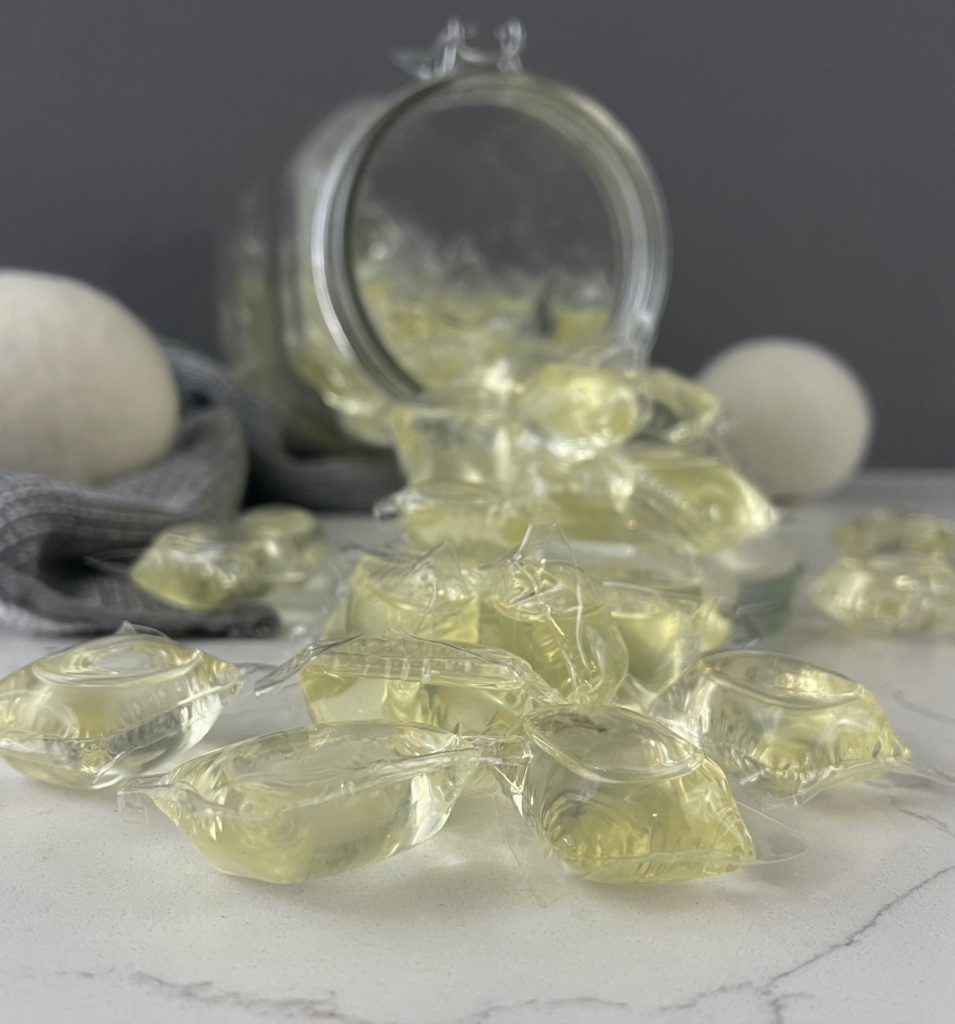
May - Dropps and Balls
Stop being dirty, think clean. Laundry clean. This month I’m challenging you to turn your laundry routine green.
May's Action
N/A
May's Swap
There are 2 to 4 potential swaps for you this month.
- First and foremost, Dropps laundry detergent pods are amazing. They come in compostable and recyclable carboard which means they can be zero waste and plastic-free!
- Next, wool dryer balls. These fuzzy balls eliminate the need for wasteful dryer sheets. They can reduce dry time, prevent static, and also help prevent wrinkles. The only thing dryer balls don’t do is scent up your clothes.
- If fragrance is a big thing for you (think fabric softener), then Dropps has a swap for that too. I’m currently testing the Dropps fabric softener out, and I at least recommend you try them. I’m enjoying the results.
- And lastly, if you have a need for the whitest of whites, then you might also consider swapping to Dropps oxi-boost pods. I use these for my white loads and they’re great.
So to recap, you can achieve a zero waste and plastic free laundry routine with just the detergent pods and dryer balls, but Dropps fabric softener and oxi-boost might benefit you too. But they’re completely optional. I have a bunch of content (reviews and videos) on Dropps. You can find all of it right here.
June - Farming
Where I’m from, June is a hot month. And that means summer! With summer comes a plethora of summer fruits and veggies. This month is (almost) all about learning more about farming.
June's Action
I have 3 tasks for you this month.
- Visit a local farmers market.
- Research food you can buy that is grown in your state, or a neighboring state.
- Visit the local farmers market again (or another one if you have more than one nearby).
Local farmers markets are sustainable for so many reasons. One is that they generally don’t have all that packaging that grocery stores do. You’ll also be supporting local businesses by purchasing their products. And, local products use significantly less fuel, emit less carbon, and use less packaging because they came from nearby.
That brings me to task #2. Researching what foods are grown locally (or relatively locally), will help you understand what the most sustainable choices are for you (and they’re just so much fresher). I come from Georgia, so Georgia peaches picked from a local farm would be one of the most sustainable fruits I could indulge in. But, some questions I might need to research could be how to find locally grown fruit or how to find out where grocery store produce was grown and harvested.
June's Swap
There’s not a swap you need to buy here, but I do recommend you buy things from the farmers market (provided you’ll acutally consume the food). Technically that’s a swap but not like our other monthly challenges.
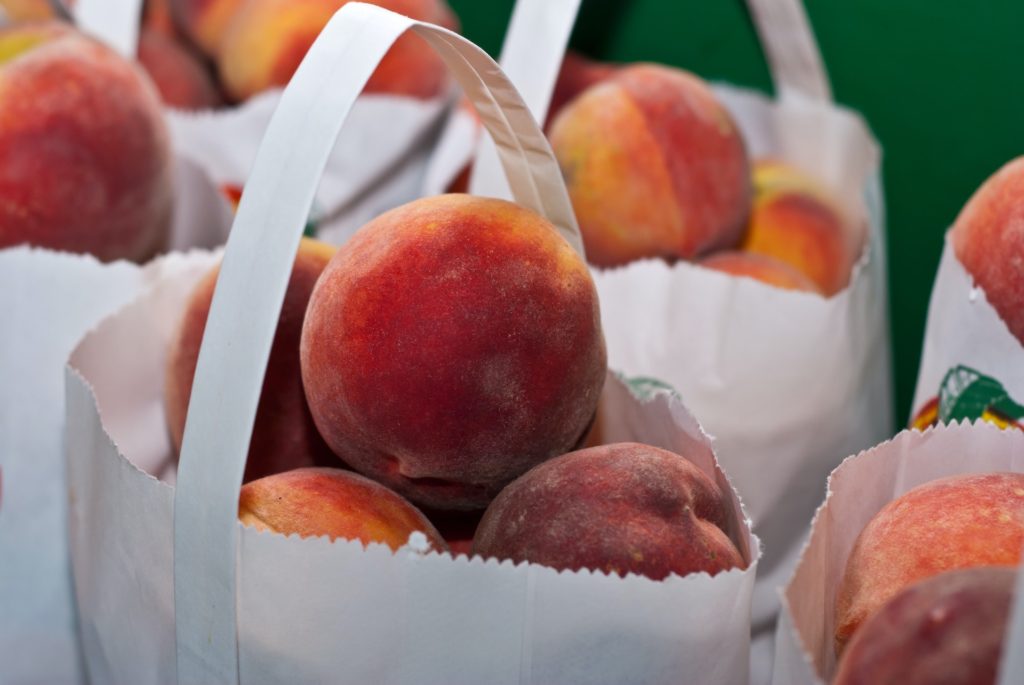
July - Peaches
It’s not what your thinking. This time, if you’re thinking dirty then you’re thinking clean! (Or should I say green?) This month we’re focused on butt stuff and I’m so excited! Metaphorically, this is right up my alley. Excuse the pun.
July's Action
N/A
July's Swap
I’ve got two options for you here: swap your toilet paper for toilet paper. Or, swap your toilet paper for water. Let me explain. Bamboo toilet paper consumers less water and has less of an impact on the environment overall when compared to normal toilet paper. Companies like Who Gives A Crap and #2 are both known for their bamboo toilet paper. This is a super easy swap to make that lowers your environmental impact.
If you’re looking to spice things up then how about a bidet? While you’ll still want some toilet paper around, bidets are miles ahead of toilet paper in terms of waste. They squirt your peach with a steady stream of water leaving you cleaner than ever before. And they do it all without repeated shipping, packaging, and farming. Tushy is a well known bidet brand and I highly recommend following their Instagram account, even if a bidet isn’t the move for you right now.
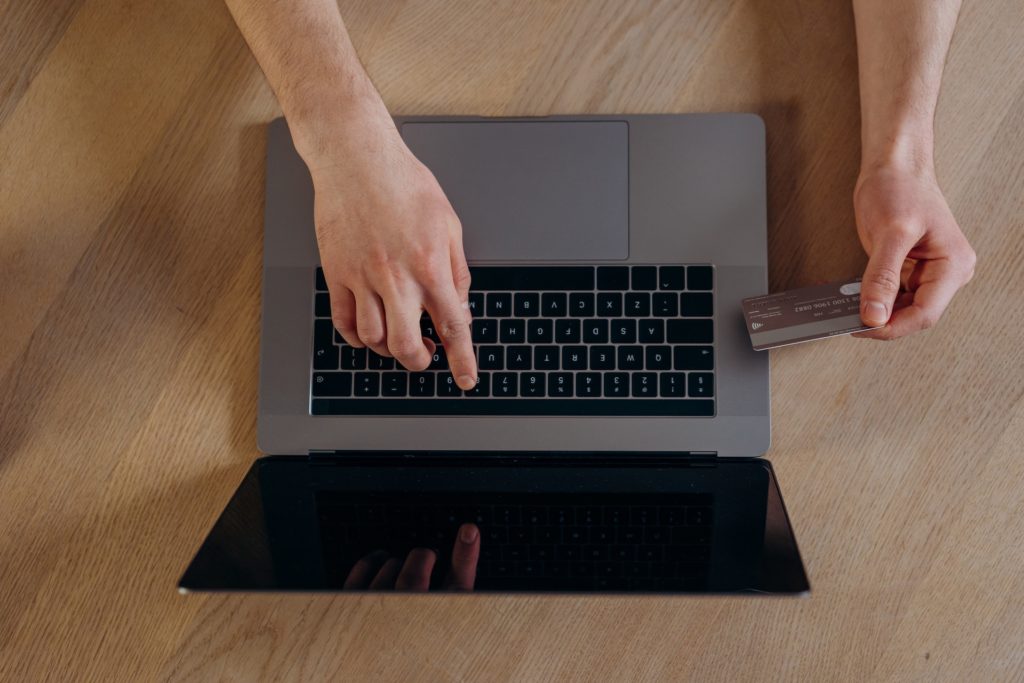
August - Think Before You Buy
Similar to June, your challenges this month are divided into weeks. The focus is on consumption.
August's Action
Choose 1 week this month, and commit to a no-buy week. That means, you don’t buy anything that week.
Of course, there are exceptions. If you run out of tampons or you have to fill up the car, then go right ahead. But if you really want that cute shirt or the latest video game just came out, it’s going to have to wait. The point of a no-buy challenge is to
- Reduce your consumption but also…
- Learn. It’s hard not buying anything. Here in the states, we hyperconsume the f*** out of everything, from fast food to clothes.
Taking a dedicated break from buying anything at all allows you to exercise those restraint brain muscles that help you say, “I don’t really need that shirt.” A no-buy period also gives you perspective. It allows you to see all the moments where you would have purchased something. And that’s good for emphasizing just how much we consume in the United States, but also just how much money sustainable living can save you.
For the other 3 weeks, I challenge you to visit 1 thrift store a week. You don’t have to buy anything if you don’t want to. But getting the lay of the land can make thrifting feel much more attainable. Seeing what kinds of products different stores have will help you say, “I can probably get this bowl at X.”
I’ll admit, I don’t thrift everything. But if I know I can find something at a thrift store then I’m much more likely to push off buying it new until I check my local thrift shops.
August's Swap
N/A
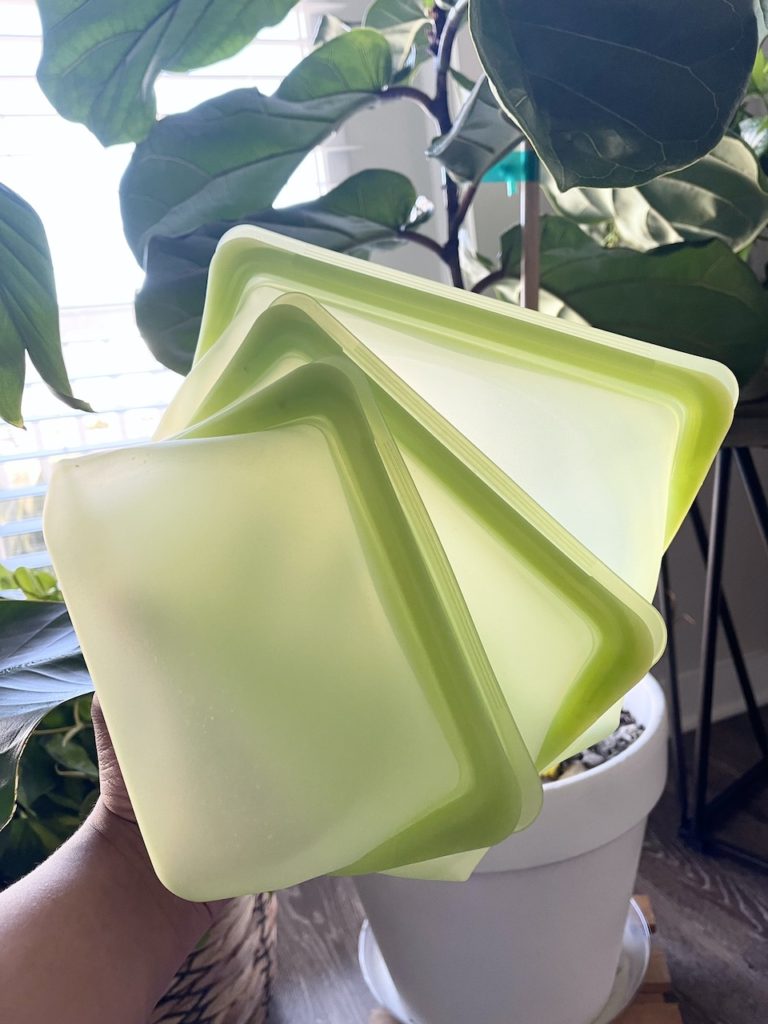
September - Stasher
I’m bringing us back to plastics baby! Plastic bags were a staple in my house growing up. Well, those days are behind me and they can be behind you too. Easily.
September's Action
N/A
September's Swap
Stasher bags are silicone replacements for plastic baggies. Gone are the days where you use a plastic bag and then throw it away. Stasher is here to stay. Seriously. Stasher bags are infinitely reusable and they probably have the same amount of uses (infinite). Check out this post for 15 ways that I use mine all the time.
I recommend starting small. Go with 2-4 bags, and that will help you figure out which Stasher bags make the most sense for you. Are you a mom that packs lunch for the kiddos? Snack bags will be great. Do you always pack a PB&J for work? Try the sandwich bag. These bags will help you permanently say goodbye to plastic.
They do so much, they truly are like superheros of the kitchen. And despite the title of this month’s challenge, it doesn’t have to only be the Stasher brand. I generally see that people enjoy Stasher the most, but I encourage you to check out alternatives too. Read my review post for Stasher to hear about alternatives.
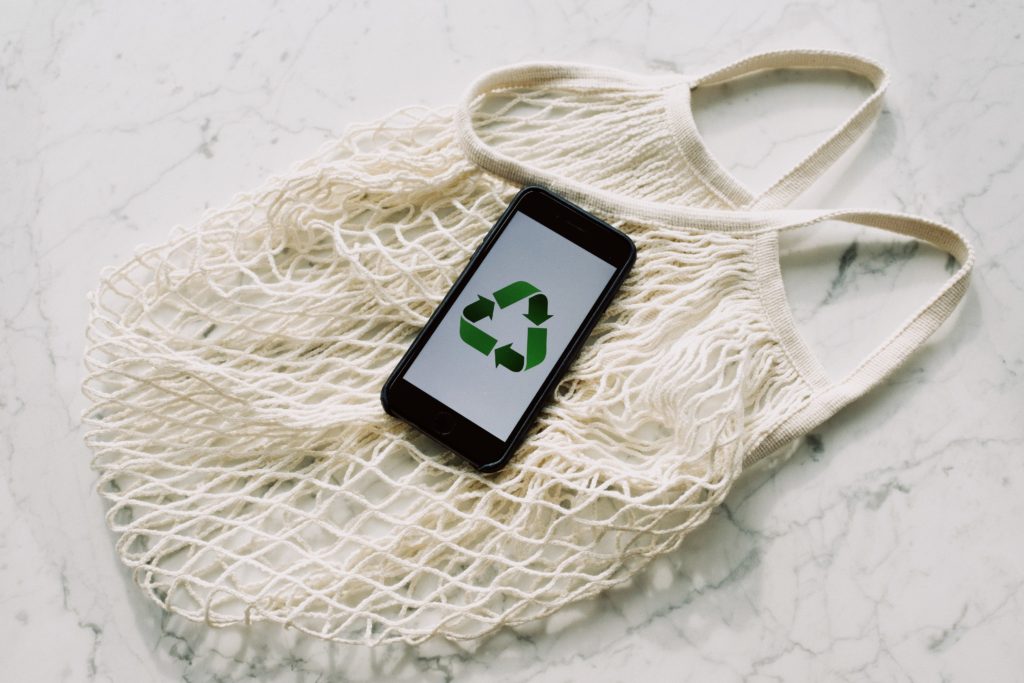
October - Recycle
Recycling has it’s pros and it’s cons. But this month we’re focusing on the pros, let’s keep reusing things.
October's Action
This month I want you to commit to recycling 2 materials. Here are some things you can recycle: glass, aluminum, plastic, and paper. For now, stick to the normal things.
Pick your two materials and then figure out what and where the recycling can happen. By that I mean, what kind of paper can you recycle? Office paper sure, but what about the shiny coupon paper from the mail? Or the wrapping paper from that birthday party? That kind of stuff will take just a tiny bit of research but you’ll want to know what you can recycle.
If you just throw any kind of paper in the bin (or metal, or plastic, or glass) then that’s wishcycling. Wishcycling is recycling everything with the wish that it will actually get recycled. And when you do that, you increase the chance that a whole truckload of recycling gets tossed out. Other things to think about are curbside vs. drive-through. I don’t have curbside so I drive my recycling to the waste center every couple of months. You’ll need to determine what’s best for you.
October's Swap
N/A
November - Freebie
First of all, take a moment and look at all the things you’ve done this year! WOW! Even if you’ve managed to do half of these things, that is a major accomplishment and you have every reason to be shouting from the rooftops. So this month, the challenge is for you to take a little bit of control. Grip that steering wheel, reflect on the past 10/11 months, and decide what you’d like to do this month. Maybe you’ve been wanting to switch to shampoo bars. Or maybe you just want to focus on using reusable grocery bags. Whatever it is, you do you boo! Just don’t bite off more than you can chew. And share it with me on social media! I’m excited to see what you come up with and how far you’ve progressed.
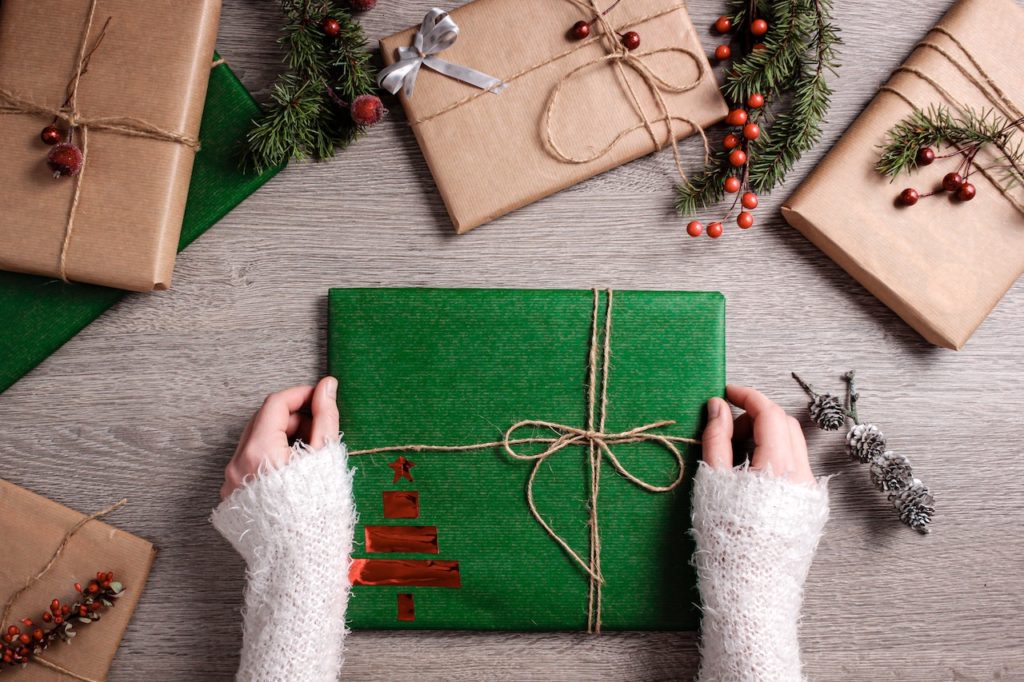
December - Giving Green
There’s a lot you could do during the gift-giving season to be more sustainable. But this month, my challenge for you is to give sustainable gifts and share.
December's Action
I challenge you to write down how many people you’re buying gifts for this season. Write down how many gifts you think you’ll get each person. (Or do a dollar amount, it’s up to you). Now that you have that list, I challenge you to take 1 quarter of those gifts/people/dollars and put them toward sustainable gifts. That could mean buying someone a reusable mug, Who Gives A Crap Toilet Paper (I’ve done this, it was much appreciated), or even wool dryer balls. I have tons of Christmas Conent and I’ll link that below, but the point is to encourage others to try products they might not try on their own. And above all, give gifts that people WILL use.
The second portion of this challenge is to send at least 1 article/video from this blog to 2 different people. Maybe that’s a video on Stasher bag uses, maybe it’s a review video. The choice is yours. Example: I see someone bringing grapes in a plastic baggie everyday. I show them my Stasher and they think it’s really cool so I’ll send them my reviews and the Stasher website link.
Christmas Related Blog Posts:
December's Swap
N/A

Otters
January - Better Bathroom
I’ve selected the bathroom as the first place for you to challenge yourself this year. It’s winter time and no matter the weather or time of year, you spend a lot of time here.
January's Action
Work on reducing your shower time to 15 minutes. Despite what you might have been taught at a young age, water isn’t as renewable as we like to think it is. Water is precious, so reducing what you use in the shower can really help the environment in more ways than you think. You’ll be using less energy to heat the water, less chemicals to treat your water, and less carbon involved in treating and transporting the water you use (yes, water has a carbon footprint too).
January's Swap
This mont’s challenge includes 2 swaps. If you’d like to stick to one “area” of your routine, then make those swaps within your personal hygiene routine. Maybe get a bamboo toothbrush, compostable floss, a Leaf razor, facial cleansing bars, or something else. You know you best, and at this point you likely already have some eco-friendly products built into your routine.

February - Peaches
If you’re thinking dirty then you’re thinking clean! (Or should I say green?) This month we’re focused on butt stuff, and just in time for Valentine’s Day too. I’m so excited! Metaphorically, this is right up my alley. Excuse the pun.
February's Action
N/A
February's Swap
I’ve got two options for you here: swap your toilet paper for toilet paper. Or, swap your toilet paper for water. Let me explain. Bamboo toilet paper consumers less water and has less of an impact on the environment overall compared to normal toilet paper. Companies like Who Gives A Crap and #2 are both known for their bamboo toilet paper. This is a super easy swap to make that seriously equates to a more sustainable lifestyle.
If you’re looking to spice things up then how about a bidet? While you’ll still want some toilet paper around, bidets are miles ahead of toilet paper in terms of waste. They squirt your behind with a steady stream of water leaving you cleaner than ever before. And they do it all without repeated shipping, packaging, and farming.
March - On-the-Go
The goal this month is to focus on waste you create when you’re not at home. Specifically, waste that gets created because your reusables are at home.
March's Action
Think about common waste points in your life. Where do you find yourself using the most single use items? At the grocery store? Restaurants? Now that you know what and where you’re creating a lot of waste on-the-go, create a go-bag that has reusables you’ll need in order to avoid single-use waste. Maybe it’s a bag with a couple Stashers, some bamboo cutlery, and a cloth napkin. Or maybe the grocery store is where you create a lot of waste.
Whatever it is, a go-bag will help you be prepared and avoid creating unnecessary waste. This month you should focus on bringing that bag with you wherever you go. You’ll face challenges with remembering it, not wanting to, and other obstacles. Remember, this isn’t about perfection but progress. Learn from those challenges as you move through the month of March.
March's Swap
N/A
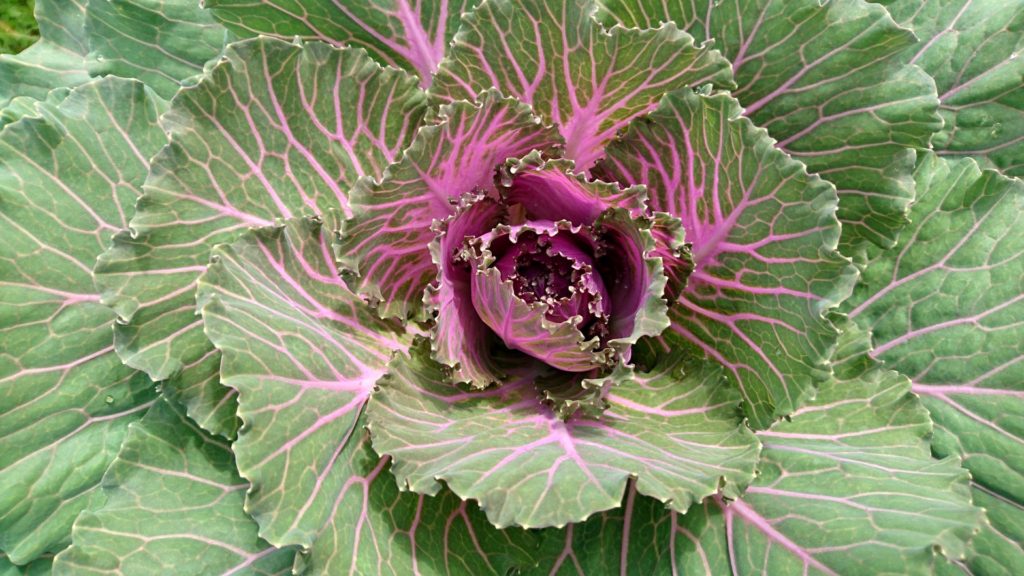
April (Earth Month) - Plants
It’s spring! And the plants are growing! Spring fruits and veggies are going to start showing up at your local farmer’s market so it’s time to grow your sustainability skills in the kitchen.
April's Action
It’s Earth month and what better way to celebrate than appreciating what the Earth gives us? Food! This month I challenge you to try one new plant-based dish each week. That could be a main dish or a side dish. As an added challenge, work on using food that is plastic free (packaging free at best), and try to get your ingredients from the local farmer’s market. Buying local has so many benefits, from reducing carbon emissions and packaging to supporting local businesses. This months challenge will push you to grow in new ways, just like out plant friends.
April's Swap
N/A
May - Think Before You Buy
This month I’m challenging you to really think and then reflect on your consumption.
May's Action
This month I’ve upped the difficulty of the no-buy challenge from 1 week to 2 weeks (see the Bee challenges for an alternative to this month’s challenge). Pick two consecutive weeks to commit to a no-buy challenge. This means you won’t be buying take out, that cute throw blanket from Target, or any other non-essential. Essentials will include things like food, toiletries, and medications.
The point of a no-buy challenge is to:
- Reduce your consumption but also…
- Learn. It’s hard not buying anything.
Here in the states, we hyperconsumer the f*** out of everything, from fast food to clothes. Taking a dedicated break from buying things allows you to exercise those restraint brain muscles that help you say, “I don’t really need that shirt.” A no-buy period also gives you perspective, it allows you to see all the moments where you would have purchased something. And that’s good for emphasizing just how much we consume in the United States but also just how much money sustainable living can save you.
At the end of the 2 week challenge, I want you to really reflect on how difficult it was. What made it difficult? When you wanted to buy something, but then didn’t, how did you feel? After 1 day? 3 days? 5 days? I encourage you to write down your reflection. Writing down what we learned helps to solidify that learning and make it last longer in our brains.
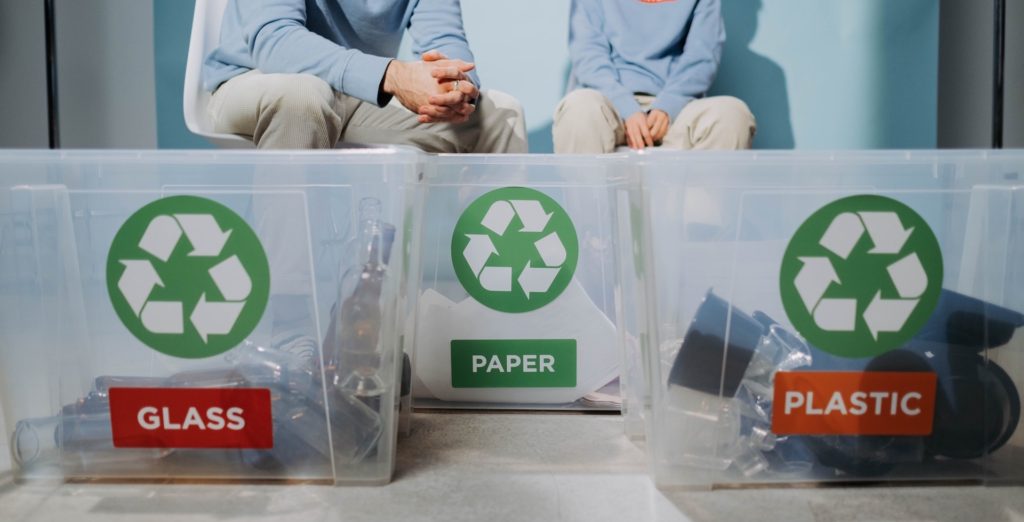
June - Recycling
Recycling has its pros and it’s cons. But this month we’re focusing on the pros, let’s keep reusing things.
June's Action
At this point, thinking about sustainability isn’t new to you. And, you’ve just spent the month of May seriously considering your consumption habits. This month I challenge you to commit to recycling all major materials. That includes paper, plastic, aluminum, and glass. If you don’t already recycle, then check out the recycling challenge from the Bee group. If you do, then I’d still encourage you to research what your local centers accept.
Familiarize yourself with the types of plastic you can recycle, what kind of paper are accepted, etc. These are important things to know. Sending the wrong materials to a recycling center can lead to whole truckloads of recycling getting sent to landfill because the center cannot sort out all the unrecyclable content.
July - Independence
This month I’m challenging you to exercise independence from…plastic.
July's Swap
Think back to March, where I you were challenged to to create and use a go-bag. Those skills will come in handy. This month I’m challenging you to live without plastic as best as you can. Remember, progress not perfection. So if you do end up using plastic, I want you to put it somewhere safe. That could be a box, a bag, it doesn’t matter. Keep all the plastic you use in one place. At the end of the month, spread that plastic out and take it all in. Reflect on why you couldn’t avoid the plastic in that particular moment and how you could avoid it in the future. Do that for each item.
If you manage to get through the month without using any plastic at all then give yourself a big high five and a pat on the back from me. That’s amazing! (This is similar to a trash audit, but it’s for plastic and over the course of an entire month).
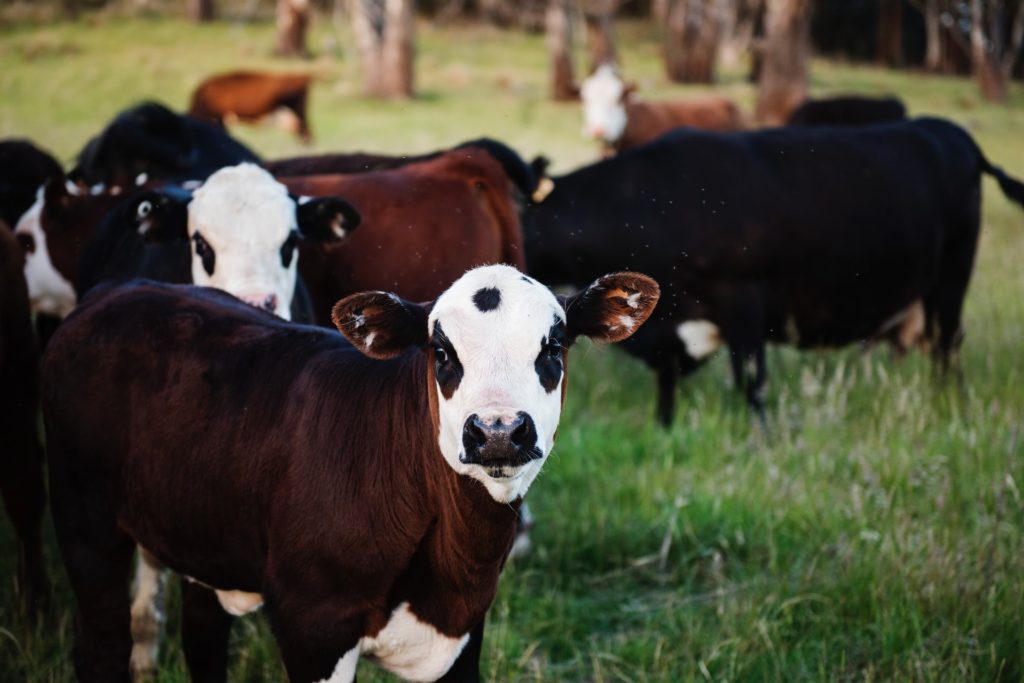
August - Meatless Month
Before you panic, it’s not what you think. This month I challenge you to go the entire month without *red* meat.
August's Action
Red meat is a leading emitter for greenhouse gasses. The goal of this challenge is for you to find other ways to get protein into your diet that don’t include red meat. Turkey and chicken are great alternatives! In my own opinion, ground turkey is indistinguishable from ground beef. Especially when there is seasoning involved.
September - Commit to the Cold
This month I’m challenging to reduce how much heat you use.
September's Action
When you run your dishwasher, turn off heated dry, use cold/cool/tap cool water in the washing machine, and work on using cooler water in the shower. All of these things will help you reduce the amount of electricity you consume heating up water. If you’re using Dropps laundry pods then they are formulated to work great in cold water anyways. When it comes to the dishwasher, I like to leave my door open and roll the racks out overnight. Then the dishes air dry overnight and are ready for me in the morning/next day.
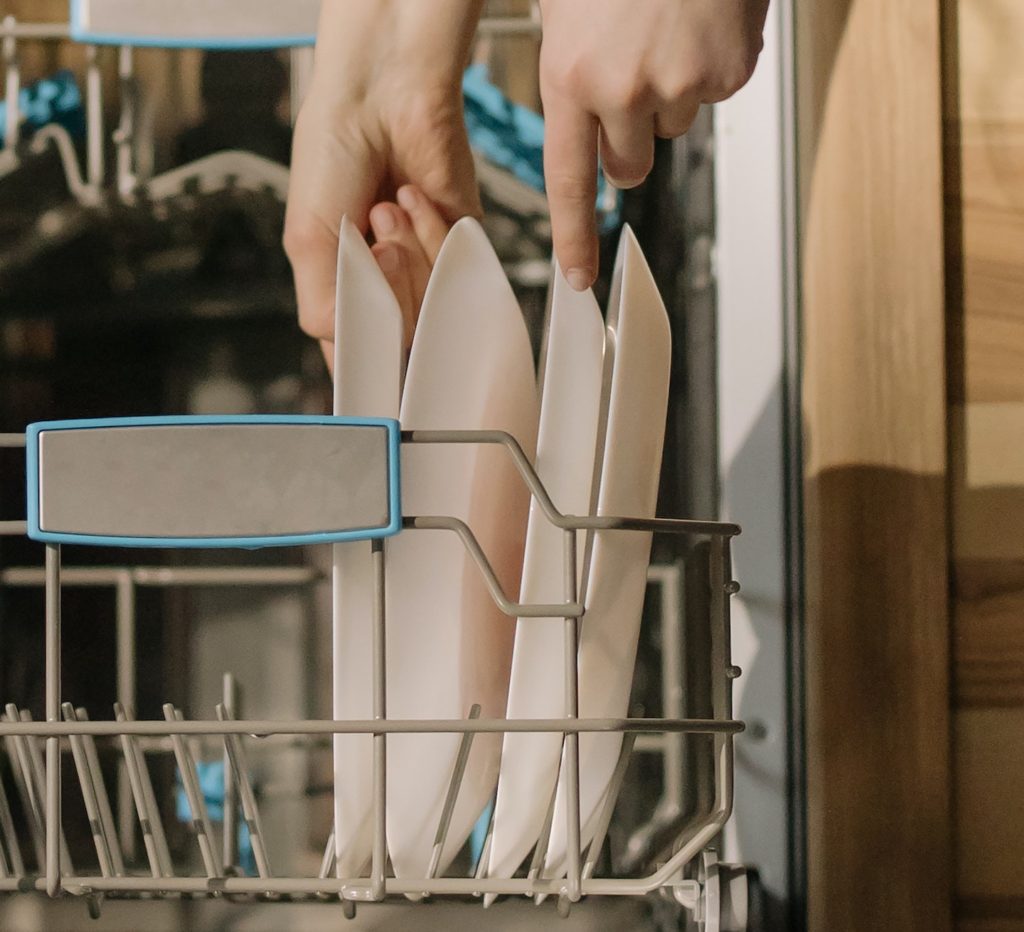
October - Green Cleaning
This month I challenge you to refine your cleaning routines even more.
October's Action
We are almost through the year. So first, look back at all the challenges you’ve completed and things you’ve learned! You should be proud of all that you’ve accomplished. This month is kind of like a freebie month but slightly more focused. Your challenge is to look at your cleaning routines and refine them. Where are you still using single-use items? How can you use eco-friendly alternatives? You know what you have in your house so it’s up to you to set your specific goals for the month.
November
Like last month, this month I challenge you to refine your personal hygiene routines even more.
November's Action
I want you to look at your personal hygiene routines and refine them. Where are you still using single-use items? How can you use eco-friendly alternatives? You know what you have in your house so it’s up to you to set your specific goals for the month. It might be trying bar shampoo, switching over to a Leaf razor, or finally getting a bamboo toothbrush.
December - Green Gift Wrap & Green Giving
This month we’re repeating December’s challenge from the Bee group, but building onto it.
December's Action
First, take a look at the December challenge for the Bee group. Do that really quickly by using the jump link to the Table of Contents below.
Your December challenge is to do the same thing, plus some. In addition to that challenge, I also challenge you to challenge to use only sustainable gift wrap. Check out these posts for ideas on how to wrap gifts sustainably. You’ve got this!
Christmas Related Blog Posts:
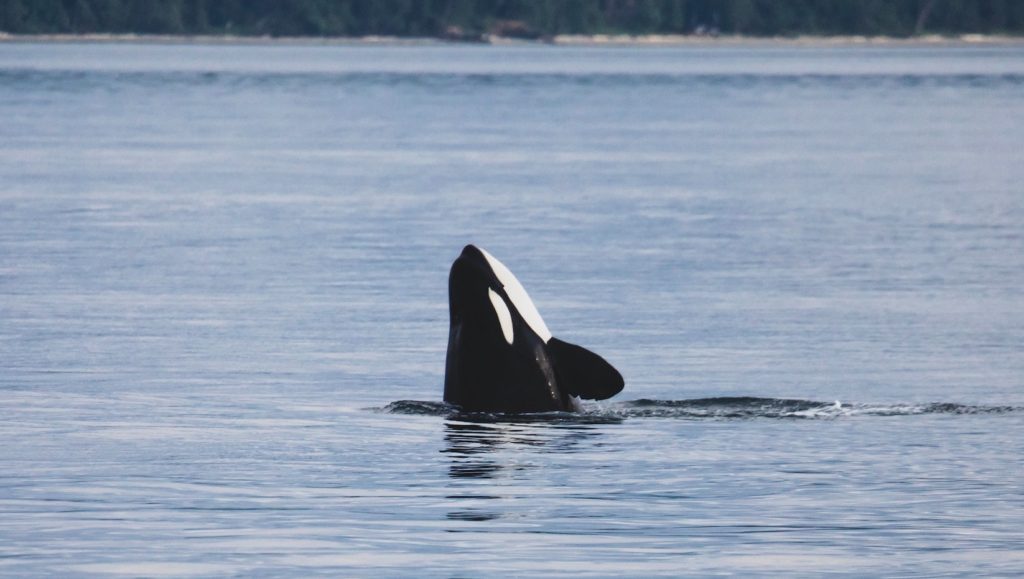
Orcas
January - The End Is The Beginning
To start the year off, you’re going where most things “end.” The trash.
January's Action
Your first challenge for the year is to perform a trash audit! Yes, that means you’ll be digging through your own trash. Pro-tip, plan ahead. Put the icky things to the side in a different bin and just take note of what you’ve put in there. Then, take a notepad or a device and write down everything that’s in your trash. Ex: 6 banana peels, 5 coffee cups, 7 water bottles, 3 q-tips, etc. From there you can reflect on what you’ve sent to landfill and why.
Following my example, I would look at my list and see water bottles. To reduce my waste, I could plan on recycling those water bottles moving forward. Or, I could commit to using a reusable water bottle. How you decide to act on your trash audit is up to you. I’ve chosen this challenge as your first Orca challenge because it’s good to start the year off with a strong awareness of where you create the most waste.
February - Think Before You Buy
To help start the year off right, this whole month is a no-buy challenge.
February's Action
Challenging yourself to participate in a no-buy February might sound like a tall order for the second month of the year. But I actually think it’s the perfect time for you to do it. What better time to practice self awareness and restraint than when you’re starting a year’s worth of challenges?
This no-buy challenge will give you the opportunity to learn from any difficult moments, times where you might give in, or other obstacles. You then get the chance to reflect on those obstacles and move into March with a better understanding of yourself and your consumption habits and struggles.
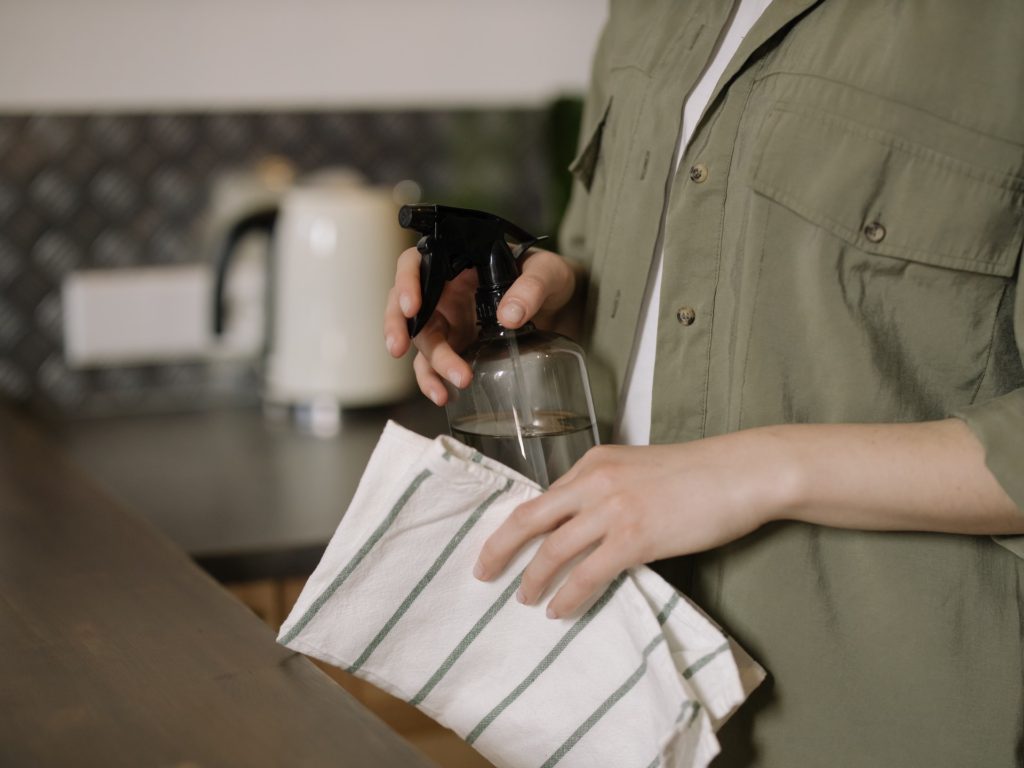
Last month was all about exercising those mental muscles. So to give you a sligh break from that, this month your challenge is to implement a completely zero waste cleaning routine (or get as close as you possibly can).
March's Action
Think about common waste points in your life. Where do you find yourself using the most single use items? At the grocery store? Restaurants? Now that you know what and where you’re creating a lot of waste on-the-go, create a go-bag that has reusables you’ll need in order to avoid single-waste. Maybe it’s a bag with a couple Stashers, some bamboo cutlery, and a cloth napkin. Whatever it is, a go-bag will help you be prepared and avoid creating unnecessary waste.
This month you should focus on bringing that bag with you wherever you go. You’ll face challenges with remembering it, not wanting to, and other obstacles. Remember, this isn’t about perfection but progress. You’re in the orca group, and you’re at the top of the food chain. You wouldn’t be here if you didn’t already have green cleaning habits. This challenge is meant to take you to the next level.
So, what is a completely zero waste cleaning routine? Ultimately that’s up to you. But if it were me, I would remove any single-use items completely. That could be a mop pad, dusting cover, or spray bottle solutions. I would instead make sure all my bottles are reusable and that I’m only using cleaning solutions with minimal packaging. At best, you’ll be able to compost that packaging. The next best thing would be to make sure everything you use can and will be recycled. At this stage, the goal is to make sure you’re not sending anything to the landfill.
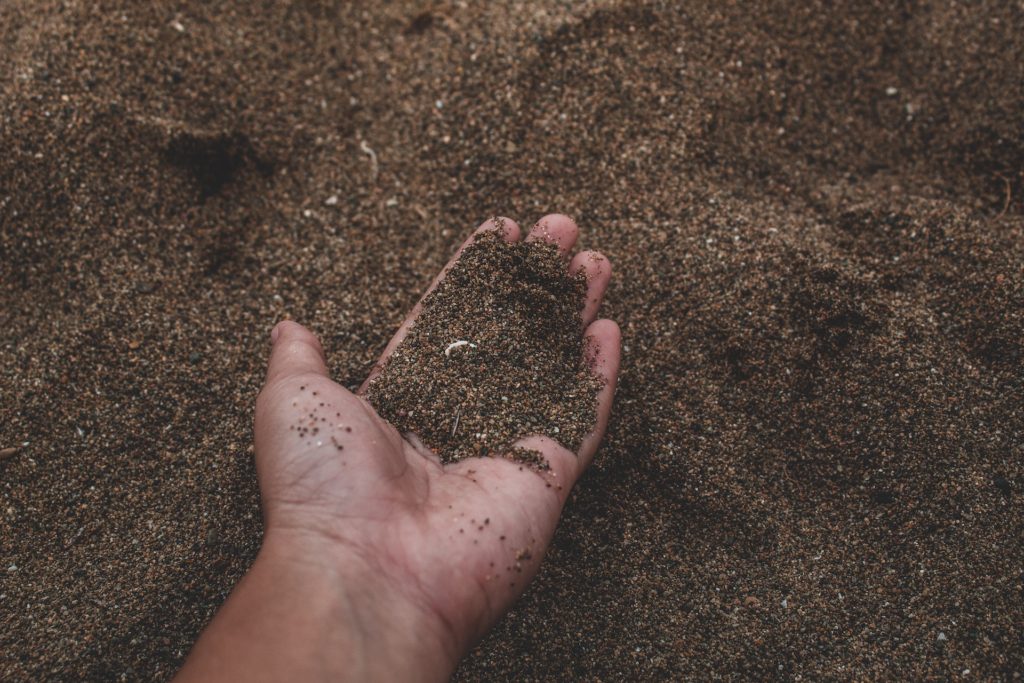
April (Earth Month) - Almost Zero Waste
Building from last month, this month’s challenge is meant to push you closer and closer to creating as little waste as possible.
April's Action
The first challenge for the month is to commit to recycling every material you can. I’m confident you’re already recycling, but maybe there’s one or two loose ends that you could tighten up.
The second challenge of April comes in three parts.
- Research composting, composting methods, composting materials, and all other things composting.
- Purchase the things you need to start composting.
- Start composting.
Now, I understand not everyone can compost. If that’s you, then swap this month out for another challenge. But, I still challenge you to research it. Composting is just so cool! And, it’s useful to understand. I’m confident that composting will continue to grow in popularity and become more and more accessible on a larger scale.
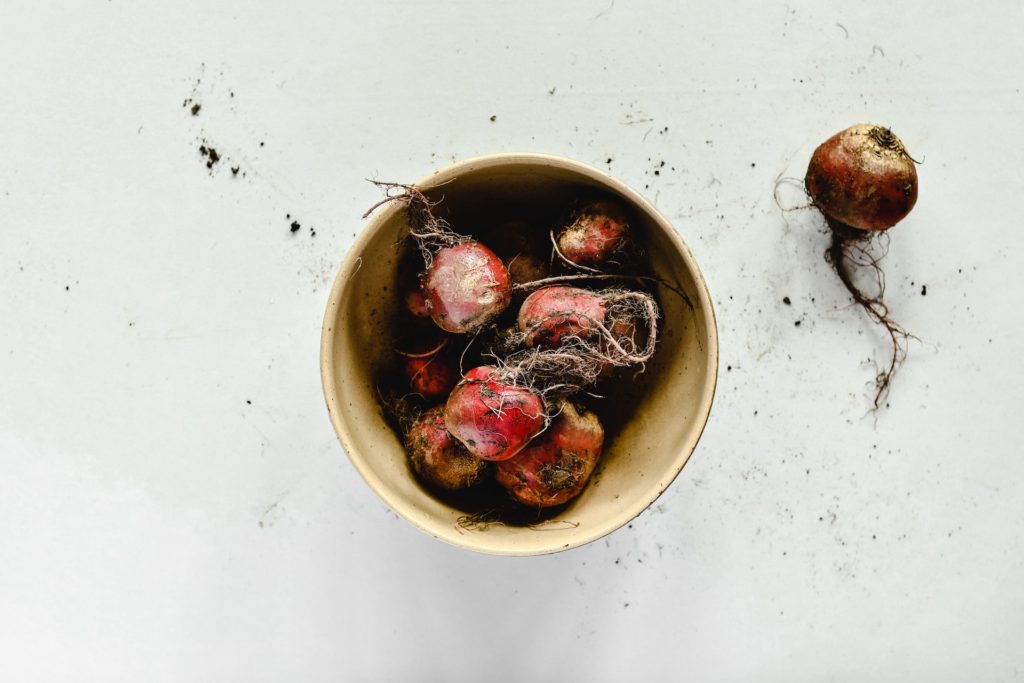
May - Growing Green
Summer time is upon us! That means warmer weather and clearer skies. This month your challenge is to utilize the sun and all it’s rays by growing something to eat.
May's Action
Think about some whole foods you regularly buy.
Your challenge for the month is to grow at least one thing that you can, and will eat. This month’s challenge is pretty flexible, believe it or not. You could go as big as growing multiple veggies in your backyard or on your patio. Or, you could do something much smaller like a few herbs on a window sill. But whatever you choose to grow, the goal is to grow something you currently buy on a regular basis. This challenge is about reducing your consumption at the grocery store.
Growing your own food is one of the easiest ways you can bypass the transportation and packaging that can make produce so wasteful. There’s also just so much to learn when it comes to growing your own food. Your learning has to begin somewhere!
Recycling has its pros and it’s cons, but this month we’re focusing on the pros. This month’s challenge is all about air drying things.
June's Action
It’s no secret that heating elements suck up tons of energy in your home. Be it the dishwasher, water heater, or drying machine. This month, your challenge is to air dry more laundry. I’m purposefully leaving this a little bit open ended. If you don’t already air dry things, then maybe you’ll just want to start with blankets and linens. If you do air dry some laundry already, then only you will know what the next step for you is. I’m assuming your laundry routine is already completely zero waste. If it’s not, this is definitely the time to swap out anything creating waste in your laundry routine for a more sustainable alternative.
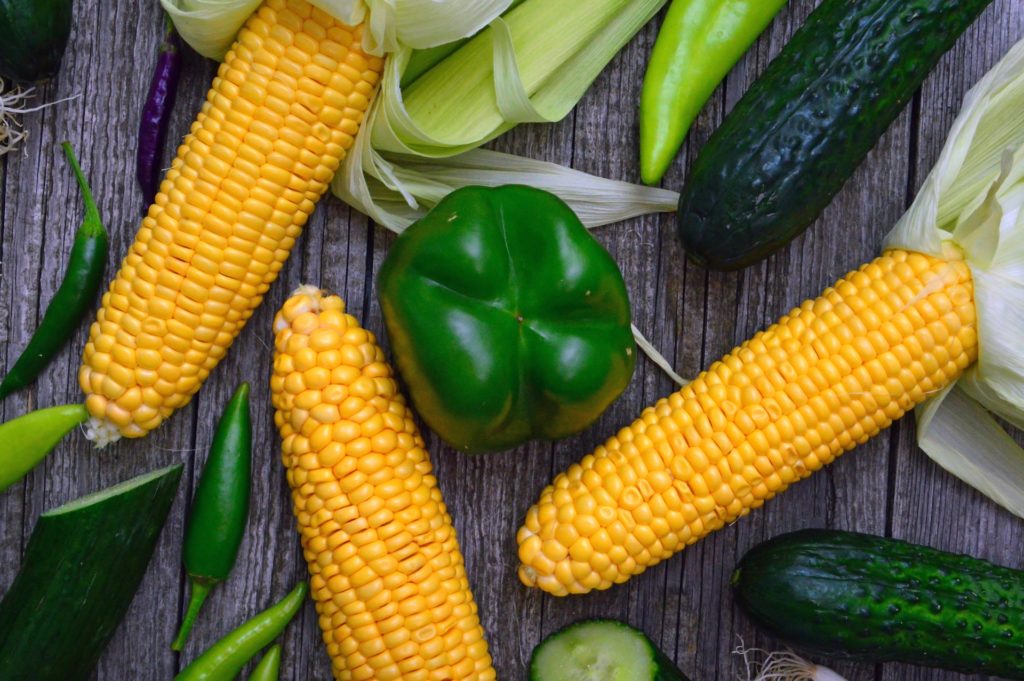
July - Questioning Your Produce
When I think about July, I think about fresh and juicy watermelon by the pool, blackberries and raspberries on cream cheese icing, and other delicious desserts. So, this month your challenge is all about food (again).
July's Swap
This month your challenge is building onto what you learned in May. When you were thinking about what you wanted to grow, you probably had to do some research on what you could grow for the season. This month’s challenge is all about learning more about the food you eat. Specifically, research your region. What foods are produced locally?
For this challenge, I want you to define “local” as, in your current state or a neighboring state. Then determine what seasons yield what crops? How can you determine if the produce in a grocery store is grown locally? Then, take all that information and put it into a resource that you can access really easily.
The goals of this challenge are:
- To become familiar with the food you buy and put into your body
- Recognize when specific foods are in season (those will be the most sustainable for you to buy)
- And to strengthen your researching skills
August - Meatless & Local
Sticking to what goes on in the kitchen this month, your challenge is to practice making meals at home with fresh local ingredients.
August's Action
Simply put, this month’s challenges are to make 1 meal per week with ingredients exclusively from your local farmers market and go two days each week completely meatless. (If you don’t have a local farmers market, then stick to whole foods only instead.)
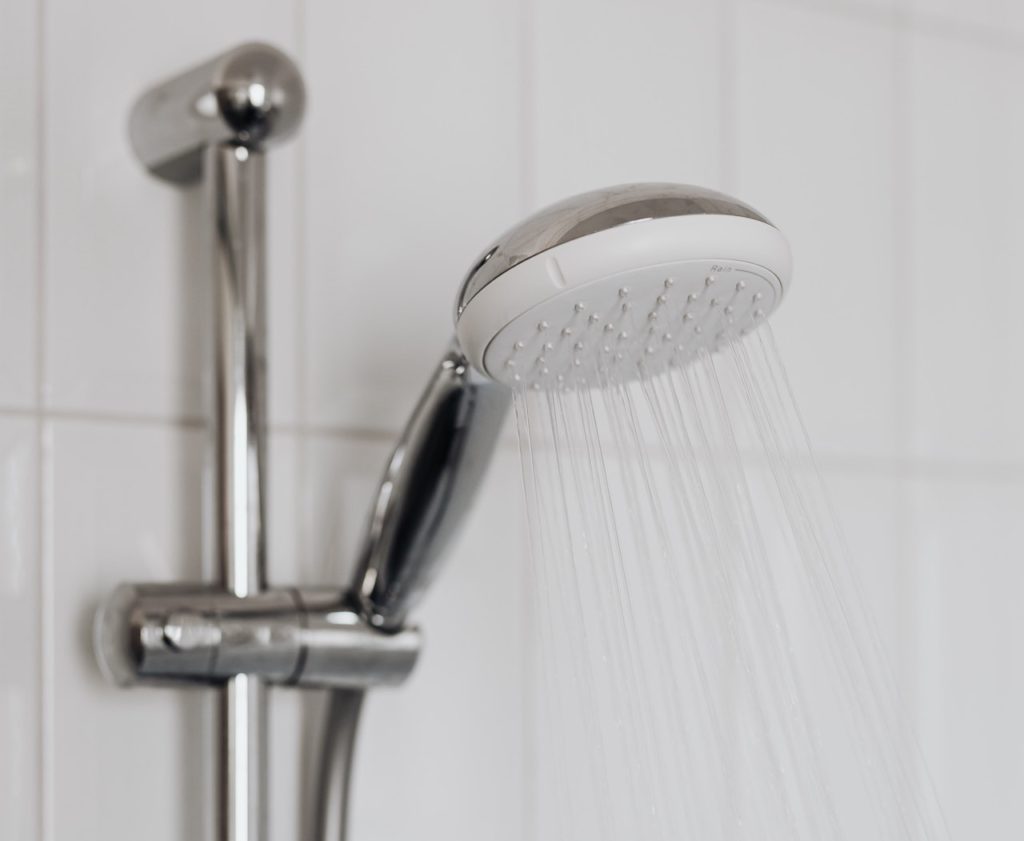
This month, your challenge is to commit to the cold once again.
September's Action
If you were once an Otter (in the otter group), then this month’s challenge is familiar to you. Orcas swim in the most frigid of waters our planet has to offer so your challenge for this month is to work on lowering your water temperature in the shower. Cool/cold water uses significantly less energy because it doesn’t have to be heated up. Not only does that use less energy and save you money, but it also puts less demand on the energy grid and means you have a lower environmental impact. Cooler water is also better for your skin than warm and hot water.
…another man’s treasure. This month is all about being proactive even if you stand out of the crowd a little.
October's Action
There are two challenges for this month.
The first is to research these things:
- Dumpster diving
- Waste in supply chains
- Holiday waste,
- Repair/take-back programs
You might notice that all of these things have something in common. They all have to do with waste at various points in a products lifespan. Supply chain waste has to do with waste before the product even makes it to your hands. Dumpster diving has to do with unnecessary waste as a result of arbitrary consumer values and policies (ex: best by dates). And repair and take-back programs have to do with preventing waste.
Your second challenge is to begin planning and buying for Christmas. Bad decisions are made under pressure. You’re much more likely to buy something someone doesn’t want or need if you wait until the last minute. So make your lists now and begin buying. This will also increase the likelihood that you’ll find items you need at thrift stores or other second hand locations.
It’s up to you to decide what to do this month. Maybe you need a break from actively pushing yourself to be more sustainable. That’s okay! Take some time. Or maybe you want to revisit recycling? The choice is yours, but make sure to take some time to appreciate all your hard work and dedication this year!

December - Green Giving
This month you’ll be giving 100% sustainably.
December's Action
Your challenge this month is to give 100% sustainable gifts in 100% sustainable gift wrap. There are plenty of articles to give you inspiration, I will link a few of them here to get your mind going. The second part of this challenge is to share 10 blog articles with friends. These should be articles that they would find helpful or informative but they don’t have to be mine (even though I’m partial to my own content).
Christmas Related Blog Posts:
Thanks for joining me today! If you liked this content and want to see more, please subscribe to my newsletter. You can do that here!
Sustainably is supported by readers like you. When you buy through links on this site, we may earn an affiliate commission at no additional cost to you. You can read more about affiliate links on our “Affiliate Marketing…” page.